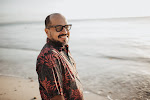 As a teacher, I often reflect on a long-running debate about human nature between another teacher, Plato, and his student, Aristotle. At the risk of oversimplifying that debate, as an idealist, Plato, in the guise of Socrates, argued that people are inherently good. Aristotle, on the other hand, believed that while people could be taught to be good, they are generally more self-interested, hence his claim in The Politics that “man is by nature a political animal.”
As a teacher, I often reflect on a long-running debate about human nature between another teacher, Plato, and his student, Aristotle. At the risk of oversimplifying that debate, as an idealist, Plato, in the guise of Socrates, argued that people are inherently good. Aristotle, on the other hand, believed that while people could be taught to be good, they are generally more self-interested, hence his claim in The Politics that “man is by nature a political animal.”As educators, we stand somewhere in the middle of this debate, albeit leaning more towards Plato. We don’t quite claim that people are inherently good, but we do believe that they can and should be taught to be good. In this sense, our dilemma is better contextualized by the contrasting ideas of Plato and Aristotle about art. Whereas Plato argued that art should portray an abstract ideal, Aristotle argued that art should reflect concrete reality, with all its imperfections. Aristotle summed up this contrast in his distinction between the potential, or the ideal, and the actual, or reality as we see it.
As educators, we tend to idealistically believe in the potential of our students. Other professionals, however, are much more Aristotelian in their practical inclination towards baser aspects of human nature, namely self-interest. Lawyers work within an adversarial framework that pits parties against each other, each struggling for its respective self interest. Businesspeople play off of people’s self-interests in a competitive market driven by commercial consumerism. The medical profession has profited off of people’s insecurities with products such as Botox, Viagra, and plastic surgery, rather than encouraging everyone to live healthier, balanced lives. Politicians and the entire American system of federalism rely on conflicting interest groups, under the fatalistic and paralyzing expectation that these interest groups will cancel each other out. Journalists thrive on bad news about people who do bad things. Police officers spend most of their time hunting bad people, all the while trying not to become bad themselves. Even accountants operate under the assumption that someone somewhere at sometime will steal something.
In short, most professions are premised on the reality of self-interest. However, for us teachers, our profession is premised on the ideal of potential, that is, the ideal potential of our students. Maybe that’s why we have such a hard time communicating with politicians, business leaders, and other professionals in the great education debate. Maybe their pressure for accountability stems from an Aristotelian perspective of education, a deficit perspective that sees children as incomplete and broken machines that need to be fixed, not as “living systems [that] grow and evolve of their own accord” (Senge, 2000, p. 37), which is how most of us teachers see our students.
Yet the Aristotelian perspective is validated by our shared history, where violence and bloodshed eclipse our few, ephemeral moments of kindness and charity. Indeed, if the usual outcomes in human history are any measure, I can’t blame the realists for wanting to err on the side of caution and assume the worst of humanity.
In this light (or darkness?), ours is not so much the noble profession as it is the idealistic profession that requires quantum leaps of faith. And as one such professional, I confess that I profess that faith.
And at times, my faith is validated by a few but proud outcomes; like when Marvin, whom everyone had dismissed as lazy and stupid, one day understood and related to the children of Polonius in “Hamlet”; or when Nicolette, an overachiever obsessed with building her resume, humbly learned the value of service when tutoring a child at a battered women’s shelter as part of a National Honor Society service project; or when Rabban, a troubled kid who once came close to being arrested, found the drive to do better in school in order to land a disc jockey job we had arranged for him at a local radio station; or when Marie, after her father had passed away, found solace and meaning in my own story of my father’s passing. There are many moments such as these, moments that give me reason to hope.
Thus, while the Aristotelians choose to err on the side of caution, I’d rather err on the side of hope.

